Let's cut the crap about "inflation" Inflation is the sustained increase in the general level prices for goods and services. It is almost always caused by governments printing too much money. Inflation is not a rise in specific prices caused by firms raising prices to sustain their profits while paying the lowest level workers living wages. In a market with competition, this can not normally happen, at least not without the collusion of all suppliers and the government. Inflation came to the attention of the general public in the 1970's when increases in the price of oil, gas, and heating fuel were almost perfectly correlated with increases in the consumer price index, a mix of goods most households need to operate. Since that time inflation has been much studied. Economist LOVE to debate the causes of inflation. They are many and varied but generally fall in two categories: Demand and Cost. When there's lots of money chasing scarce goods prices will rise. When costs go up firms would like to increase prices to maintain profit margins. Inflation is not bad in itself. It's a sign that economies are growing and central banks are now expert at managing inflation if it becomes a problem. The levers of inflation control in Canada are in the hands of the federal government. Everyone has heard of the Central Bank moving interests rates up and down to spur the economy or control inflation. This is NOT the domain of the provincial government and the premier's comments on inflation are about as on point as him weighing in on the number of ships in the Queen's navy. Of all the problems we need to concern ourselves with in Nova Scotia inflation is not one. Most people who fret about inflation are thinking old timey thoughts about the 1970's. Interestingly, in modern times globalized economies are much more complicated than they were and even changes in gas prices are now only slightly correlated with inflation. It should be clear to anyone that by comparison a change in the local minimum wage, which by definition only impacts the tiniest most trivial corner of overall local wages, would have next to zero impact on cost inflation relative to gas prices which fuel our whole global economy and everything in it. In the context of discussions this week "inflation" is an undefined fear-mongering buzzword - dog whistle politics heard only by the barking backroom boys - used by the premier of Nova Scotia dishonestly for no other purpose but obstinate obfuscation. In dismissing calls for a reasonable ongoing rise in the minimum wage to match rising global costs of living he is hurting Nova Scotia by aiding a very few who would claw personal wealth from the backs of the most foundational level of workers in our society. Minimum Wage Mtyhbusting Today the Premier of Nova Scotia dismissed a call supported by all reasonable parties and citizens to raise the minimum wage to $15. It's my understanding that both the NDP and PC's support increasing the minimum wage.
The premier 'decreed' there was no point in raising wages because of inflation - firms would just raise their prices to cover the increase causing inflation. For every complex question there's an answer that's simple, intuitive and wrong. If minimum wage hikes automatically resulted in price increases, we would expect to see the inflation rate rise whenever the minimum wage rises. Looking back over 100 years of readily available data, this does not happen. It would also be able to be shown that if Mr. McNeil were correct it would be impossible to ever raise the real minimum wage because any increase would simply be offset by a corresponding increase in inflation. No one would ever care about the minimum wage. Clearly, this is not true and there have been long periods of Nova Scotia history where real wages adjusted for inflation have increased. In reverse, we well know that wages increases have in recent times not kept up with inflation so minimum wage buying power has actually decreased. What’s wrong with his... I was going to say argument? ... but he made no attempt to support his claim. It relies on the assumption that firms pay their workers the maximum amount they can possibly pay while staying in business, such that any increase in wages necessitates raising prices. It's the ultimate pro-fatcat approach to thinking about the economy. It could not be further from the truth or further from traditional Liberal party values. Business is not generally in the business of maximizing wages. It's in the business of maximizing profits. Competitive conditions mainly determine prices, not the cost of goods sold. In a competitive market the slight cost increase induced by minimum wage increases comes out of the firm's profit margin, not the consumers pocket. If Nova Scotia's economy is not working this way. If we are overrun with noncompetitive monopolies whose profitability and pricing is contingent on the cost of minimum wage workers then we have much bigger problems than anyone has imagined. But we don't, not even NSPower works this way. The truth is minimum wage increases are the most powerful tool we have for translating growth that concentrates wealth in the hands of a very few to broad-based increases in prosperity and the shared experience of increased productivity. This is where the math comes into economics and I'm stone-certain that the Premier has not done the math. I genuinely suspect - and this is not meant as an insult, innumeracy is at least as big a problem in NS as illiteracy - that the premier does not understand how percent works - it seems to come up again and again in his thinking. At the minimum wage workers spending is very sensitive to income - there's no room for saving or investing in the budget. An extra dollar/hr is a 10% increase for someone making $10/hr and it results in a 10% increase in spending plus the broadly shared economic impact of that spending. It's different for those making $100/hr, it's a 1% increase and that additional money is often banked or spent outside the region. The cost of minimum wage workers is low, so the additional cost for employers is small. Some of the best studies of this are data collected in southern states when an area increased it's minimum wage while similar adjacent areas did not. Mr. McNeil's expectation would be that the increase would cause business to migrate to the lower-wage area, business that stay would suffer, unemployment would rise and inflation would increase as wage increases are passed along to consumers. In reality what happens is the economy of the area with the higher minimum wage increases and the growth is more broadly-based, businesses do not migrate or fail at any increased rate. Prices rise slightly, but far less than the increase in the minimum wage. This all happens because the economic activity generated by a dollar of minimum wage earner spending is much greater than that of those at the top. And this is where we know from experience that the Premier's math is weak. It's been observed that $3.5 dollars of economic activity are generated per dollar of minimum wage earning, while at the top (over $150,000/yr) it was something like $.79 dollars of activity per dollar earned. The most important point is that raising minimum wages put upward pressure on wages nearest the minimum. This is generally credited with helping to form the strong middle class that rose during and after WWII, and is now being decimated in Nova Scotia. Nova Scotia is great in part because we became wealthy not by making more rich people but by making fewer people poor. That's how it's done. The premier and the Liberal party are wrong. There is a fine line between fishing, and standing on a wharf looking like an idiot Before there was a ferry. Before there were income taxes. Even before there was a Liberal party, their were wharves. Wharves were among the first things we built in Nova Scotia. The most fundamental part of our infrastructure.
All around Nova Scotia we still say "Government Wharf" as if it's just a name. It's easy to forget that wharves were the original business of government in the province. That's what local government did - they financed and built wharves. They financed the government works not through taxes on the citizens, but by tariffs and levies on those wanting to do business in Nova Scotia or with Nova Scotians - those wanting to use the wharves. It was a very different idea about government and the economy - government as the business of infrastructure. Later government built roads and eventually became involved in education. And until the 20th century that was about it. The people - through their industry and good works, the judicial system, and the military took care of everything else. Today wharves are still surprisingly central to Nova Scotia's economy. And from one end of the province to the other they are in trouble. Like all of our government infrastructure, crucial capital investments have been deferred in favour of other business - to the breaking point. 100 years on the neglect is becoming dangerous to people, the economy and our future. Here's a link to the wharves of Nova Scotia. So, it was kind of galling this week to learn that on top of everything else about the Ferry Farce the government was committing a secret undisclosed sum to update and upgrade wharves in Portland Maine. Today Jamie Baillie, leader of the Provincial Progressive Conservative opposition party asked the Premier of Nova Scotia to state clearly how much that would cost and if that money might not be better invested here at home. These are good questions. No mater how we define our problems and priorities here in Nova Scotia, having some critical method and clear decision rules for putting our limited resources to their highest and best use is a fundamental that all citizens and reasonable politicians would agree on. Mr. McNeil, the Premier of Nova Scotia, was not able, or willing, to answer any aspect or implication of the question. His obfuscating response was that he had stood on many wharves in Nova Scotia. I'm sure he has. In 2004 a report on the state of wharves in Nova Scotia, The Land And Sea Report, revealed concerning findings. Little was done and today things are much worse. Investment responsibility has been essentially abdicated and in many cases the communities of Nova Scotia, while paying the highest combined tax burden in all of Canada are, for the first time since Nova Scotia was founded, left to struggle alone to build, maintain and repair wharves. “for coastal communities, harbours and wharves perform functions equivalent to the major public infrastructure in urban areas such as highways, bridges, airports and industrial parks” -- Between the Land and the Sea, 2004 Rising tide levels, rotting timbers, ever bigger boats, and a sea that never lets the land be, challenge Nova Scotia communities like Port Lorne to keep wharves safe. Port Lorne Link Even more desperate, other communities like Port Williams and Bear River have lost their wharves through environmental degradation and neglect, and by extension lost their connection to the sea that brought opportunity, food and the exciting adventure of life. There's a lot of work to be done to reconnect Nova Scotia to the sea. It starts at the wharf in rural Nova Scotia, not at the 'tech hub' in Halifax or the ferry dock in Portland Maine. |
John Wesley
Writing about life, citizenship, and Nova Scotia. Archives
June 2020
Categories
All
|


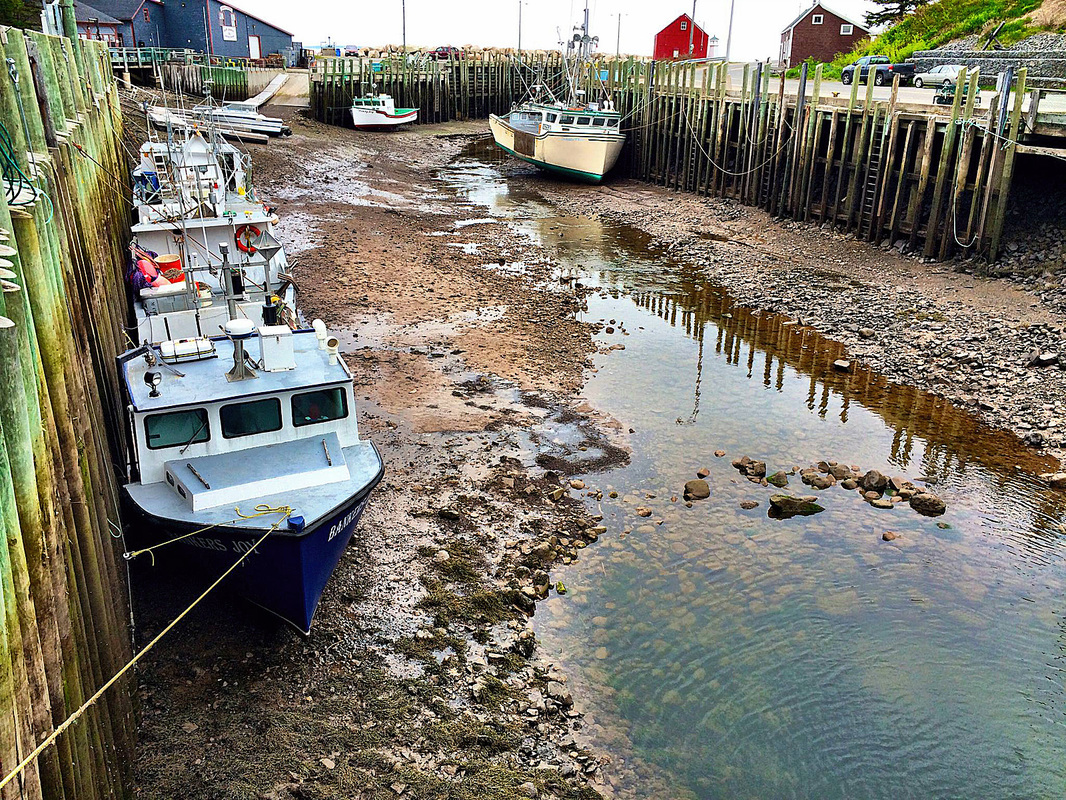
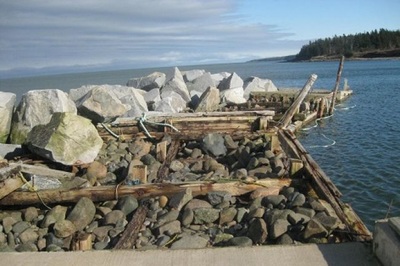
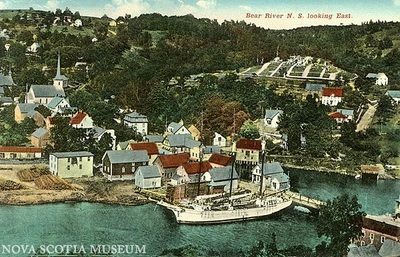
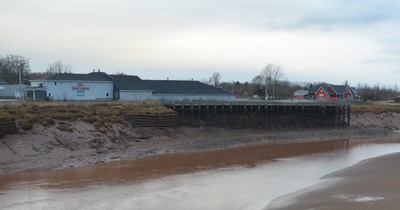
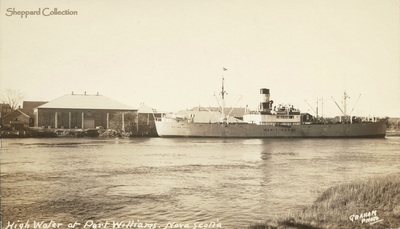
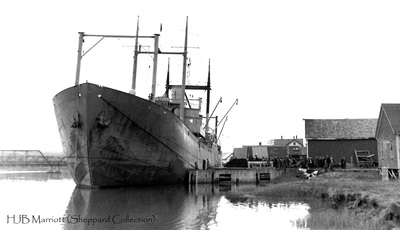

 RSS Feed
RSS Feed